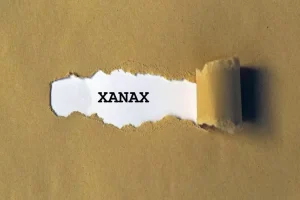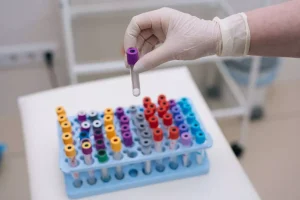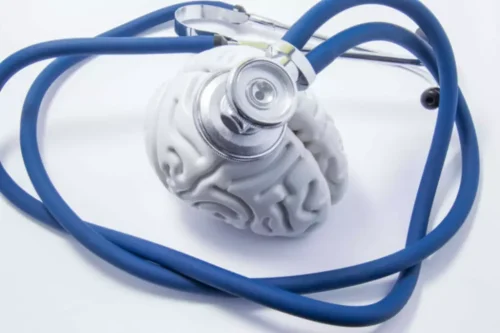
They also may begin to experience erratic eating and sleeping habits, and their desire for recovery often wanes due to a lack of using their support systems. These are the initial warning signs that a person in recovery could be entering the process of relapse, and it is important to recognize them as quickly as possible. This stage occurs before a person is even aware https://ecosoberhouse.com/ that they could be in danger of relapse, and intervening now before they enter mental relapse can prevent the issue from taking hold. Addiction often develops because people use drugs or alcohol to feel better about their current situation. Whether it’s a new and stressful event or a distressing emotional state, substance abuse often turns off feelings of discomfort.
The Stages of Recovery
Additionally, we will delve into the importance of seeking support and professional help, ensuring a comprehensive approach to successfully managing high-risk situations. So, let’s dive in and equip ourselves with the tools needed for a resilient recovery. Discover the most influential factors that can lead to relapse and hinder recovery.
- Distraction is a time-honored way of interrupting unpleasant thoughts of any kind, and particularly valuable for derailing thoughts of using before they reach maximum intensity.
- Relapse prevention strategies play a key role in managing the four main triggers for relapse in recovery.
- What is more, negative feelings can create a negative mindset that erodes resolve and motivation for change and casts the challenge of recovery as overwhelming, inducing hopelessness.
Identifying External Triggers
By actively identifying and addressing these internal triggers, individuals can effectively prevent relapse, address setbacks and challenges, as well as maintain long-term sobriety. Cognitive therapy and mind-body relaxation techniques are important tools in developing healthy coping skills and preventing relapse. Cognitive therapy helps individuals address negative thinking patterns and develop positive thought patterns that support recovery. Mind-body relaxation techniques, such as deep breathing and meditation, can help manage stress and reduce the inclination to resort to substance use as a coping mechanism.
Addiction Triggers And How To Manage Them
Having a substitute behavior like going to a yoga class or taking a long bath also can be helpful when you’re feeling triggered. Reciting positive mantras or doing relaxation exercises may help you resist these urges as well. For additional support, work with your counselor types of relapse triggers or therapist on how to effectively deal with these reminders. You can learn a lot about yourself by taking an inventory of what you’re feeling and asking yourself why. In fact, learning how to face your emotions without escaping into addiction is invaluable.

Developing a prevention plan is a critical step that involves a combination of strategies and techniques designed to help individuals stay on the path of recovery. Cognitive therapy, for instance, is an effective tool for relapse prevention. It helps change negative thinking patterns and develop healthy coping skills.
How can I identify and manage high-risk situations for relapse?
- Shift perspective to see relapse and other “failures” as opportunities to learn.
- In fact, despite the existence of FDA-approved treatments for nicotine, alcohol, and opioid addiction, more than two-thirds of individuals will relapse after initiating treatment.
- Clinical experience has shown that the following are some of the causes of relapse in the growth stage of recovery.
Explain to yourself that you recognize the trigger, you’re taking steps to remove yourself from the situation and you don’t allow the trigger to have any power over you. Send them a text message or Facetime them until the urge to relapse passes. Technology gives us the tools to stay connected to our support groups even if they’re not in the same time zone. The HALT acronym helps those in recovery keep an eye on some of the most basic human needs that can lead to or intensify triggers if not fulfilled. Being in any one of the HALT states reduces a person’s ability to cope with stress and increases impulsivity.

The power to resist cravings rests on the ability to summon and interpose judgment between a craving and its intense motivational command to seek the substance. Stress and sleeplessness weaken the prefrontal cortex, the executive control center of the brain. If you are at a gathering where provocation arises because alcohol or other substances are available, leave. Cravings can intensify in settings where the substance is available and use is possible. A person can find alternative routes to avoid high-risk places, such as places where they used to meet their dealers or bars where they used to binge drink.

What is a Relapse Prevention Plan?

At this point, individuals that are in recovery from substance abuse, are experiencing feelings, both positive and negative, that can be precursors to repeated substance abuse. In addition to cognitive therapy, mind-body relaxation techniques can be beneficial in reducing stress and triggers for relapse. In early addiction recovery, having a mentor or a recovery coach, who is further along in their recovery journey, can be beneficial. They can provide guidance, share experiences, and offer support during times of triggers or temptation to return to substance use.

